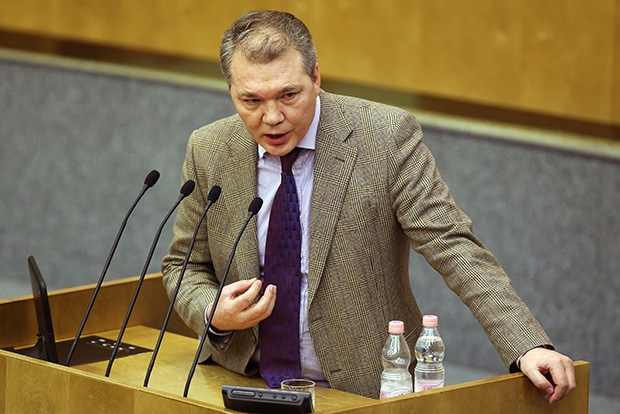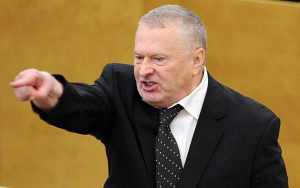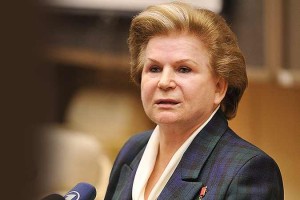
Russian Duma asks U.S. Congress to end blockade
The United States’ economic blockade of Cuba was the subject of impassioned debate Tuesday (Oct. 21) in the Russian Duma, the lower house of Parliament, which was considering a plea to the United Nations in defense of that Caribbean nation.
The resolution passed overwhelmingly, with 444 of the 450 deputies voting “yes.”
[For details of that draft resolution, in Progreso Weekly, click here.]
Introducing the bill, the first deputy chairman of the Duma’s Foreign Affairs Committee, Leonid Kalashnikov, said that deputies from all the factions represented in the Duma had met Monday with the Cuban ambassador to Russia, Emilio Lozada García, to review the text of the resolution.
“The deputies strongly supported the aspirations of the peoples of the world to lift the economic, commercial and financial blockade of Cuba,” Kalashnikov said. “We need to put pressure on the United States on this issue, and therefore I ask for a ‘yes’ vote.”
“The State Duma calls on the U.S. Congress to listen to the international community, as well as the growing voices of Americans who support a review of U.S. policy toward Cuba,” the deputy chairman said.
Congress “should consider the repeal of the Helms-Burton Act and other legislation that hinders the development of trade and economic cooperation with Cuba in accordance with universally recognized principles and norms of international law,” Kalashnikov said.

The U.S. should then “embark on the path of building relations with the Republic of Cuba on the basis of the principles of sovereign equality of the states.”
Support from the Liberal Democratic Party, a minority in the Duma, came grudgingly.
Its leader, Vladimir Zhirinovsky, said that the LDP basically agrees with the resolution “but I would like to note that the price of this support can be too high. Fifty-two years ago, we hooked up with Cuba only because [the island] is close to the United States.
“But in Cuba we lost more than we gained. And now Russia is the main target of U.S. encroachment because of that foreign policy of ours.”
Russia should pay more attention to countries on its own borders, like Turkey, Iran and Afghanistan, Zhirinovsky said. There is no need to be “friendly” or “brotherly” with any other nation, just apply cold calculation, he said.

And, in an allusion to Russia’s waiver of Cuba’s $35.2-billion debt last July, Zhirinovsky said that “we should not forgive debts but rather require their timely payment.”
Two other deputies sided with Kalashnikov. Vasily Likhachov of the Communist Party described the U.S. blockade as “pure anti-humanism, legal nihilism and sustained contempt” for the international community’s opinion.
Former cosmonaut Valentina Tereshkova said that her party, United Russia, backed the draft resolution and pointed out that “our constant appeals for support of the Republic of Cuba are widely supported by the world community.”
As in past occasions, Tereshkova reminded her colleagues that Cuba took in 40,000 Russian children for medical treatment after the 1986 Chernobyl disaster.
“Though far from us, the Cubans are fraternal and reliable partners,” she said.
[Photo on top of Leonid Kalashnikov.]

